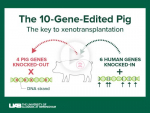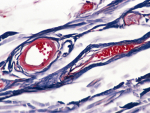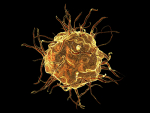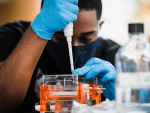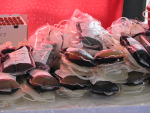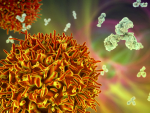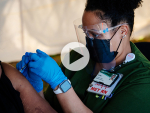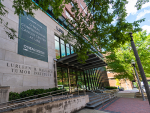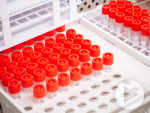Displaying items by tag: department of pathology
UAB O’Neal Comprehensive Cancer Center, Morehouse School of Medicine and Tuskegee University collectively receive $18 million U54 grant from the National Cancer Institute.
After years of researching the SON gene, Erin Eun-Young Ahn, Ph.D., may have found the cause behind an extremely rare disease.
- release
- advancement
- office of the president
- office of the provost for student and faculty success
- department of anesthesiology and perioperative medicine
- department of neurology
- department of biochemistry and molecular genetics
- department of cell developmental and integrative biology
- department of clinical and diagnostic sciences
- department of dermatology
- department of emergency medicine
- department of family and community medicine
- department of genetics
- department of medical education
- department of medicine
- department of microbiology
- department of neurobiology
- department of neurosurgery
- department of obstetrics and gynecology
- department of ophthalmology and visual sciences
- department of orthopaedic surgery
- department of otolaryngology
- department of pathology
- department of pediatrics
- department of pharmacology and toxicology
- department of physical medicine and rehabilitation
- department of psychiatry and behavioral neurobiology
- department of radiation oncology
- department of radiology
- department of surgery
- division of academic general pediatrics
- division of acute care surgery
- division of adolescent medicine
- division of advanced medical imaging
- division of anatomic pathology
- division of cardiothoracic surgery
- division of cardiothoracic anesthesia
- division of child abuse pediatrics
- division of clinical immunology and rheumatology
- division of community anesthesia
- division of diagnostic radiology
- division of developmental and behavioral pediatrics
- division of forensic pathology
- division of gastroenterology and hepatology
- division of gastrointestinal surgery
- division of general internal medicine
- division of general pediatrics and adolescent medicine
- division of genomics and bioinformatics
- division of gerontology geriatrics and palliative care
- division of gynecologic oncology
- division of hematology and oncology
- division of infectious diseases
- division of informatics
- division of laboratory medicine
- division of maternal fetal medicine
- division of molecular and translational biomedicine
- division of molecular imaging and therapeutics
- division of multispecialty anesthesia
- division of neonatology
- division of nephrology
- division of neuro oncology
- division of neuropathology
- division of pain medicine
- division of pediatric allergy and immunology
- division of pediatric hematology oncology
- division of pediatric cardiology
- division of pediatric critical care medicine
- division of pediatric dermatology
- division of pediatric emergency medicine
- division of pediatric endocrinology
- division of pediatric gastroenterology
- division of pediatric hospital medicine
- division of pediatric infectious diseases
- division of pediatric nephrology
- division of pediatric neurology
- division of pediatric oncology
- division of pediatric optometry
- division of pediatric pulmonary and sleep medicine
- division of pediatric rehabilitation medicine
- division of pediatric rheumatology
- division of pediatric surgery
- division of plastic surgery
- division of preventive medicine
- division of pulmonary allergy and critical care medicine
- division of reproductive endocrinology and infertility
- division of surgical oncology
- division of transplantation
- division of vascular surgery and endovascular therapy
- 1917 clinic
- acute care for elders unit
- addiction recovery program
- addiction recovery scholars
- alabama genomic health initiative
- all of us research program
- autism spectrum disorders clinic at uab
- center for addiction and pain prevention and intervention
- center for aids research
- center for clinical and translational science
- center for emerging drug discovery
- center for exercise medicine
- center for free radical biology
- center for interprofessional education and simulation
- center for genomic medicine
- center for low vision rehabilitation
- center for metabolic bone disease
- center for neurodegeneration and experimental therapeutics
- center for outcomes and effectiveness research and education
- center for palliative and supportive care
- center for pediatric onset demyelinating disease
- civitan international neuroimaging laboratory
- civitan international research center
- civitan sparks clinics
- comprehensive arthritis musculoskeletal and autoimmunity center
- comprehensive cardiovascular center
- comprehensive center for healthy aging
- comprehensive diabetes center
- comprehensive neuroscience center
- comprehensive stroke center
- comprehensive transplant institute
- deep south resource center for minority aging research
- gregory fleming james cystic fibrosis research center
- epilepsy center
- heflin center for genomic sciences
- hepatorenal fibrocystic diseases core center
- informatics institute
- institute for cancer outcomes and survivorship
- legacy of hope
- liver center
- lung health center
- mcknight brain institute
- minority health and health equity research center
- mucosal hiv and immunobiology center
- multiple sclerosis center
- national spinal cord injury statistical center
- nephrology research and training center
- obesity health disparities research center
- obrien center for acute kidney injury research
- pancreatobiliary disease center
- parkinsons disease information and referral center
- pediatric pulmonary center
- precision medicine institute
- primary care research collaborative
- spain rehabilitation center
- school of medicine
Yabing Chen, Ph.D., is the first researcher at the Birmingham VA to receive this highest honor for a non-physician scientist.
In this arteriolar niche, breast cancer stem cells and arteriolar endothelial cells cross-talk using a well-known signaling pathway. Targeting this pathway may offer therapeutic potential.
Sixto Leal, M.D., Ph.D., was featured in the “Front(line) and Center” category in the Pathologist's 2021 Power List recognizing some of the most inspirational pathologists and laboratory medicine professionals in the U.S. in 2021.
Understanding how reductive stress is controlled may help personalize treatment of heart failure patients, leading to better outcomes.
- release
- school of medicine
- uab medicine
- division of infectious diseases
- department of medicine
- hugh kaul personalized medicine institute
- department of pathology
- department of microbiology
- college of arts and sciences
- alabama vaccine research clinic
- school of engineering
- school of education
- graduate school
- school of optometry
- school of dentistry
- school of nursing
- school of public health
- school of health professions
- collat school of business
- coronavirus
- release
- school of medicine
- uab medicine
- division of infectious diseases
- department of medicine
- hugh kaul personalized medicine institute
- department of pathology
- office of the president
- office of the provost for student and faculty success
- coronavirus
- college of arts and sciences
- school of engineering
- school of nursing
- collat school of business
- school of health professions
- school of public health
